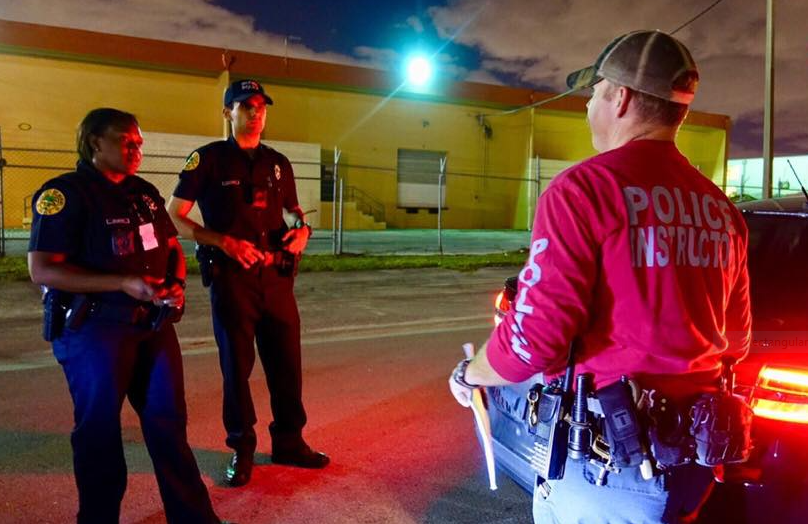
In police academies and thereafter, training should be incessant and must overcome the various reasons America’s law enforcement officers are ordinarily shortchanged from imperative life-saving skill-building. Nevertheless, police academies and law enforcement agencies employ a contingent of men and women who are certified expert instructors in all facets of police tactics and street survival, shaping the beat cops who respond to your calls for help while always employing officer safety rituals.
After all, every police instructor in the country knows and repeats the credo for any ears engaged in law enforcement: “Always watch the hands. The hands will kill you!”
That statement is the punctuation of valorous cops who have been in perilous environments and duly embraced that echo which mindfully saves police lives.
These bastions of police knowledge typically stand out by wearing red police polos, often marked with the word “Instructor” or “Staff,” offering today’s law enforcement officers the latest strategies backed by data and reams of footage, cemented with professional experiences garnered by many who display a justice badge.
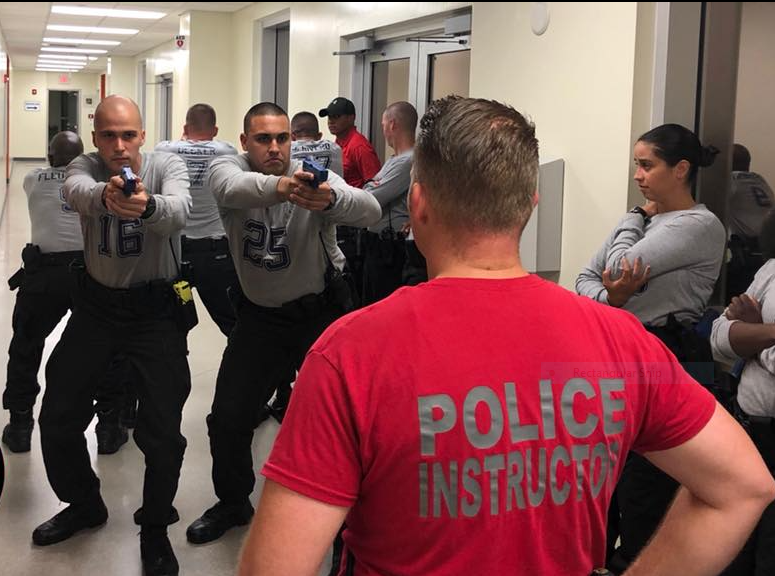
(Photo courtesy of the Miami Police Training Center.)
Why red shirts? Although the question never came up for discussion, imaginably, red sure stands out when you’re among groups of people who are learning anything and need to be focused on the lecturer(s), the battle-tested practitioners passing off their honorably honed skills.
In more vast spaces, red is like a beacon for beings requiring solid direction to readily spot the source of viable information to hopefully meet mastery levels. Imagine the vast territory required for police trainees to glean every single nuance of, say…operating emergency vehicles.
Have a question or some confusion about centripetal force or centrifugal concepts while operating tonnage under significant velocity around curves or whatever obstacles may be in the path? Look to the red shirts for analytics and anecdotal provisions to paint a picture for cops to firmly file.
Given time constraints and the mountains of police material mandated by state Criminal Justice Standards and Training Commissions (CJSTC) or Police Officer Standards and Training (POST) bodies, there is scant time to squander. Imagine all there is to know about public safety and the laws governing pros/cons, expectedly harvested in a brief period, then putting it all into practice without error.
Thus, trainees and/or cops attending with in-service instruction requirements seek out the giver of knowledge whose trove of police principles (antithetical “reforms” and how beat cops can stay on top of their profession) educationally ground less-experienced officers.
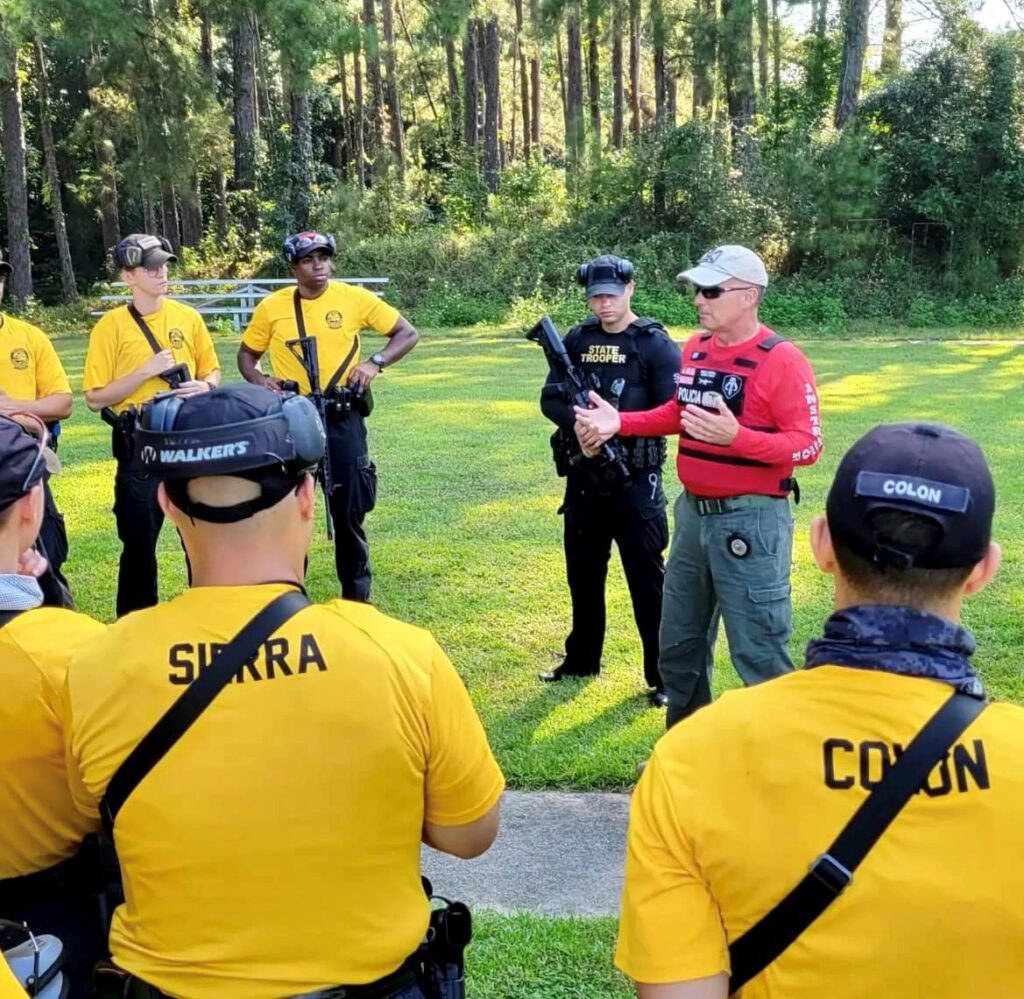
(Photo courtesy of Florida Police Benevolent Association.)
Red-shirted instructors, imparting the finer points and gritty details to the newest police cadets and/or advancing knowledge of already active street cops, ordinarily come to the head of the classroom or emergency driving course or firing range with years of professional experience under their belts and formal certificates with their name scripted on them, each serving as licenses to transfer bona fide skillsets to newer police personnel.
They do this from a mixed bag of class lectures, breaking down burglary investigations, for example. Or expounding the psychology and dynamics inherent in go-to interviewing skills during detail-gathering from victims of and witnesses to criminal events, among an assortment of criminal justice-related topics.
Police academies generally employ active and/or retired law enforcement officers to get recruits up to speed on every aspect of policing in our society. These red-shirted oracles of all-things-police-work are compensated for instructing by academy administrations.
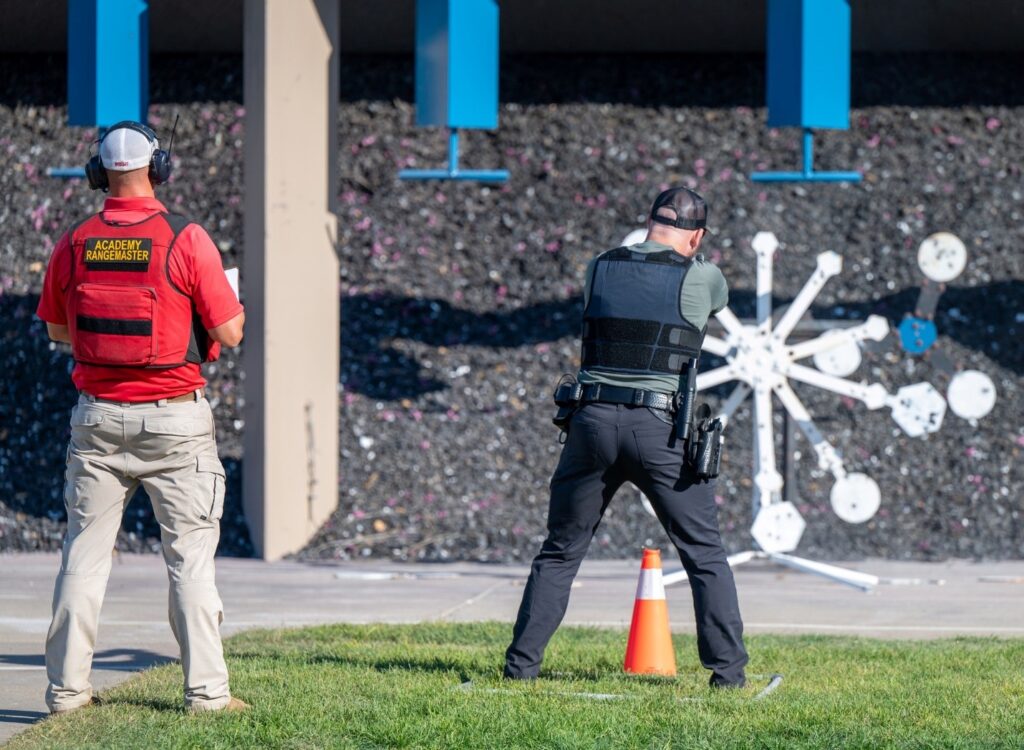
(Photo courtesy of the California Highway Patrol – Merced.)
Conversely, police departments have among their staff highly experienced active-duty cops who undergo courses as students themselves, ultimately completing curriculums that, after all is said and done, certify them as experts in any number of topics. This cadre is also known as “subject matter experts” (SMEs).
My agency maintained a roster of which of our sworn LEOs had credentials in subject matters pertinent to police work. When rookies were hired, someone in a red shirt marked with “Instructor” assumed the helm of material provisions.
When police in-service recertifications were on the calendar, the red shirts ran the show and saw to it that every officer met muster, usually conferring a completion certificate, each time, for every class necessitated by CJSTC and POST stipulations.
And it is not just America’s law enforcement officers who are effectively trained in various topics and tactics by our nation’s police experts. In October 2022, a full class of police officers from the Colombia National Police force endured a Tactical Life Saver Course taught by instructors with the Miami-Dade Police Department.
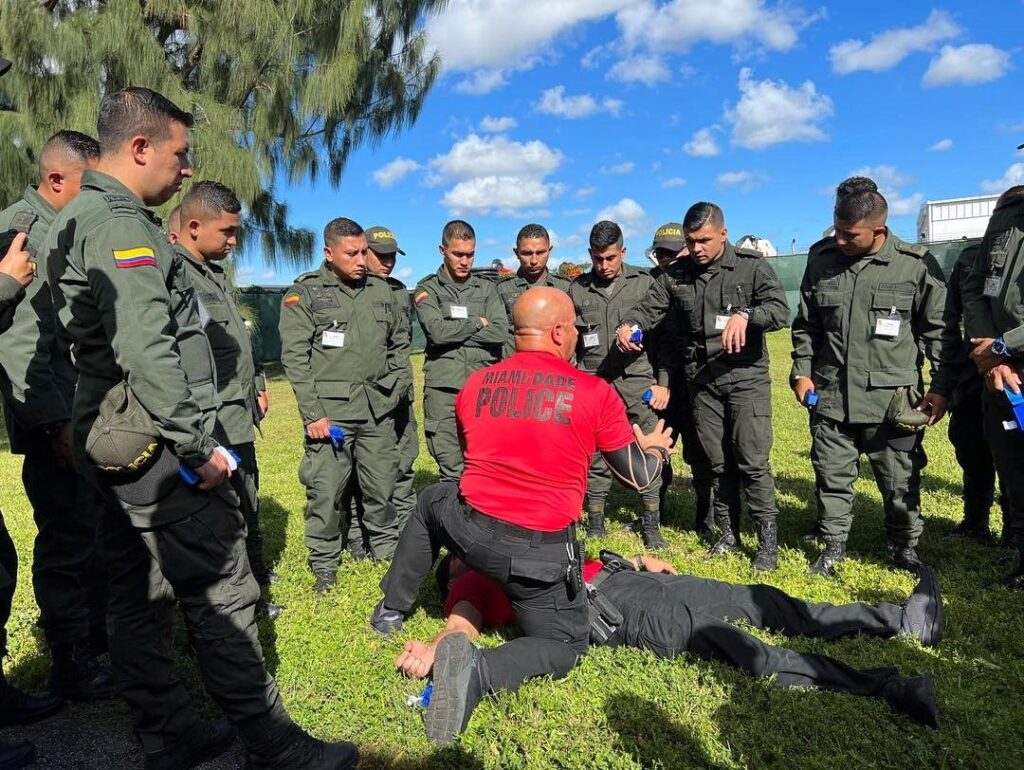
(Photo courtesy of the Miami-Dade Police Department.)
As you can discern, many of our law enforcement trainers are highly sought after by other nations’ police forces concentrating on top-notch training.
During my months at the police academy, one of the formal protocols for “recruits” on class breaks in the hallways was to stand aside, back against the wall, and offer silent honor when any red-shirted police instructor walked the hallowed premises. It was custom. It displayed respect. It was the way of the police world forming the next generation of crimefighters and problem-solvers, recipients revering the beacons pooling police cadets as one cohesive lot whose daunting duty is resoundingly co-reliant.
On “range days” when the firepower came out and casings abundantly littered the line, the red shirts teaching firearms safety and skills were easy to spot against a largely green, earthy background (unless an agency was fortunate enough to have an indoor range, then red against a grey or blue background was still spot-worthy).
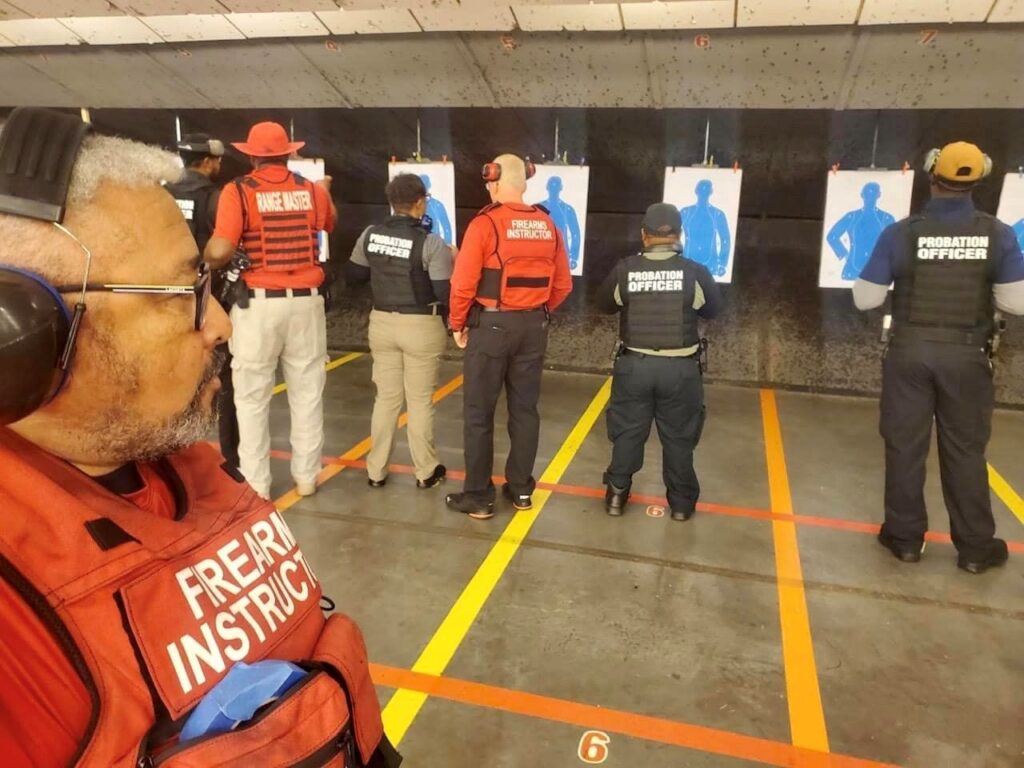
(Photo courtesy of Florida Police Benevolent Association.)
Nowadays, with the gobs of cops turning in their badges stemming from the anti-police harangues and dopes pushing defund-the-police din, one may wonder if any departures in the varied exoduses from jurisdictions in America contained the red-shirted police instructors who felt the same devaluation.
As an optimist, however, I easily imagine that police instructors see the need for even more lessons for the beat cops remaining, advancing on tried-and-true law enforcement principles and protocols with modified ones to suit contemporary society’s bizarre climate and mitigate stratospheric vileness.
Thank goodness for election season and the monumental opportunity to “reform” the reformists and “reimagine” policing from a cop’s perspective, not someone who has no clue about centripetal or centrifugal forces or straight-up criminal coddling.
Police officers have the fortune to garner hundreds of years of police experience from a batch of red shirts who have been around and seen it all, passing off a depth of wisdom no civilian review board could comprehend. Red is not my favorite color…unless it is donned by a police oracle providing our cops the knowledge to defend their lives so that they can salvage the lives of others.